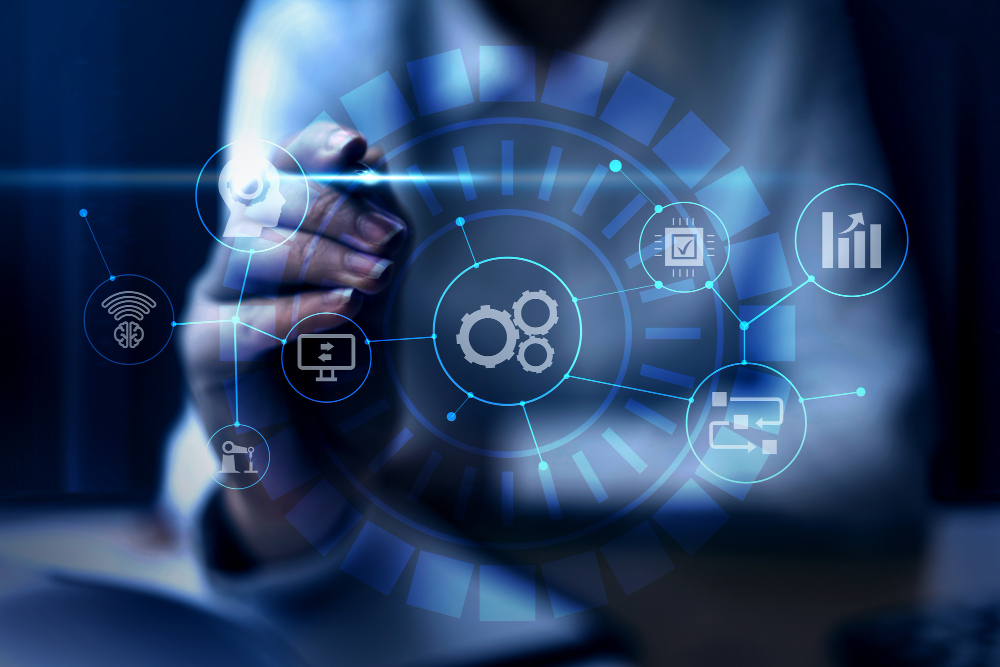The integration of Artificial Intelligence (AI) into healthcare is revolutionizing patient care, enhancing diagnostics, treatment plans, and overall outcomes. AI applications, powered by machine learning algorithms, are reshaping the way healthcare providers approach medical practice. In this article, we’ll explore how AI apps, developed in collaboration with an expert AI app development company, are driving a new era in patient-centered care.
The Rise of AI in Healthcare
Defining AI in Healthcare
AI in healthcare refers to the application of artificial intelligence techniques, such as machine learning and natural language processing, to analyze medical data and assist in clinical decision-making. These technologies enable machines to process and interpret vast amounts of data, leading to more accurate and timely diagnoses and treatment plans.
The Potential of Machine Learning in Healthcare
Machine learning, a subset of AI, allows systems to learn from data and make predictions or decisions without explicit programming. In healthcare, this means algorithms can identify patterns in patient data, aiding in diagnosis, treatment selection, and prognosis.
Diagnostics and Disease Detection
Improving Medical Imaging Interpretation
AI-powered apps are enhancing the accuracy of medical imaging interpretations. Machine learning algorithms can identify subtle anomalies in X-rays, MRIs, and CT scans, leading to earlier and more accurate diagnoses of conditions such as cancer, fractures, and neurological disorders.
Early Detection of Chronic Diseases
AI apps can analyze patient data to identify early signs of chronic diseases, such as diabetes, cardiovascular conditions, and respiratory disorders. By recognizing subtle changes in health metrics, healthcare providers can intervene earlier, potentially preventing complications and improving patient outcomes.
Personalized Treatment Plans
Tailoring Therapies to Individual Patients
AI-driven applications use patient-specific data to create personalized treatment plans. By considering genetic, environmental, and lifestyle factors, these apps optimize medication dosages, suggest alternative therapies, and minimize adverse effects.
Predictive Analytics for Disease Progression
Machine learning models can predict how a disease may progress in an individual patient based on their unique health data. This allows for proactive adjustments to treatment plans, potentially slowing disease progression and improving quality of life.
Remote Monitoring and Telemedicine
Enabling Continuous Care
AI apps equipped with remote monitoring capabilities allow for real-time tracking of patient vital signs, medication adherence, and symptoms. This empowers healthcare providers to intervene promptly in case of any abnormalities or complications.
Expanding Access to Healthcare
Telemedicine, supported by AI apps, extends healthcare services to remote or underserved areas. Patients can consult with healthcare professionals via video calls, receive remote monitoring, and even obtain AI-assisted preliminary diagnoses.
Enhancing Clinical Decision Support
Augmenting Physician Decision-Making
AI-powered clinical decision support systems analyze patient data and medical literature to provide evidence-based treatment recommendations to healthcare providers. This helps physicians make more informed and timely decisions, reducing the likelihood of errors.
Reducing Administrative Burden
AI apps can automate administrative tasks, such as appointment scheduling, billing, and documentation. This allows healthcare professionals to spend more time with patients, improving the quality of care.
Collaborating with an Expert AI App Development Company
Expertise in Healthcare AI Integration
Partnering with a specialized AI app development company with expertise in healthcare is crucial for leveraging the full potential of AI in patient care. These experts understand the unique regulatory and technological challenges of the healthcare industry.
Customized Solutions for Healthcare Providers
An established AI app development company can tailor solutions to meet the specific needs of healthcare providers. This includes creating bespoke features, ensuring compliance with healthcare regulations, and integrating seamlessly with existing electronic health record systems.
Conclusion
The integration of AI apps and machine learning in healthcare represents a monumental shift in patient-centered care. From improving diagnostics to personalizing treatment plans and enabling remote monitoring, these technologies are revolutionizing how healthcare is delivered. Collaborating with expert AI app development companies ensures that healthcare providers can harness the full potential of these technologies to provide the highest quality of care to their patients. As we look ahead, the continued advancements in AI promise even more innovative solutions, further enhancing patient outcomes and reshaping the future of healthcare.





